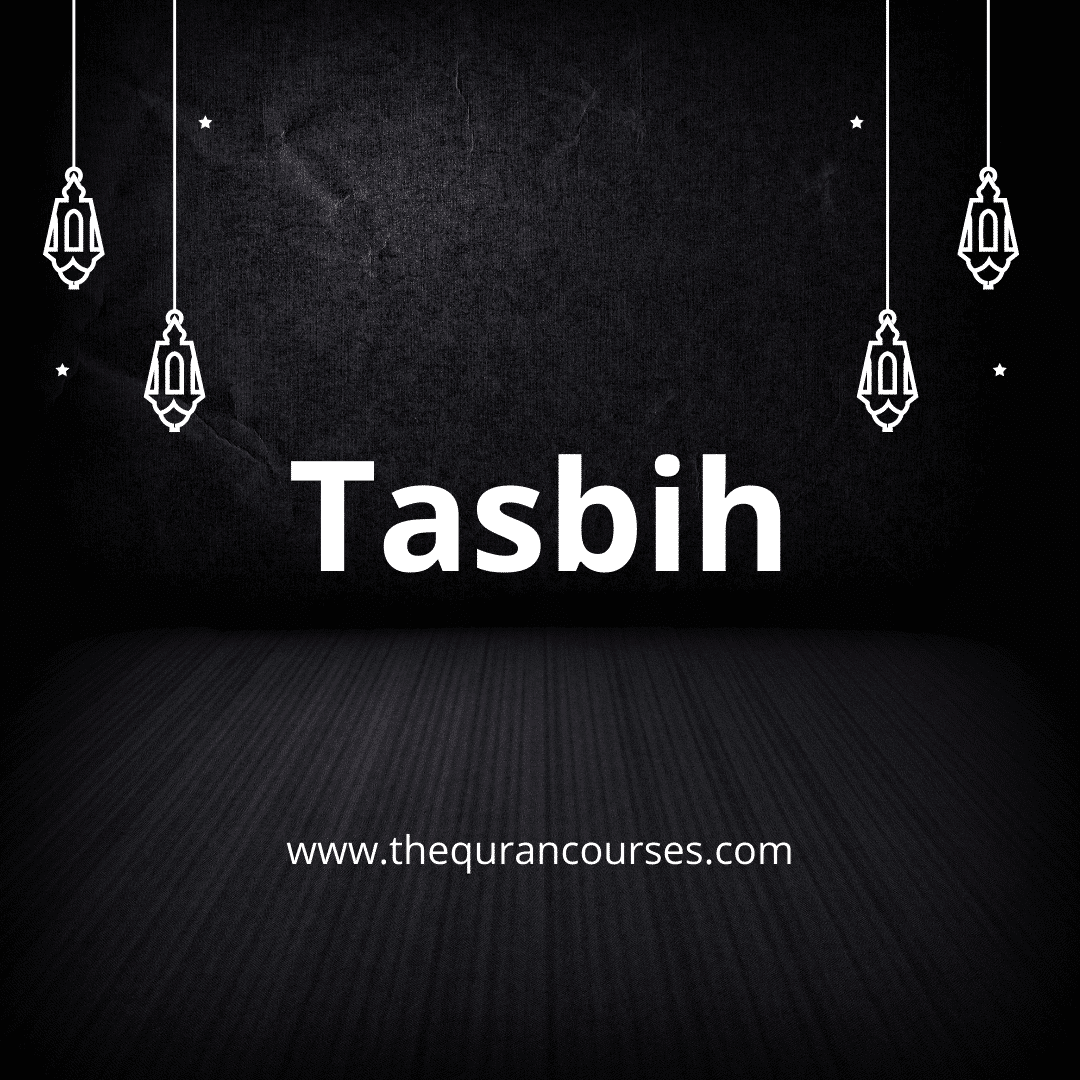Muslims widely use worry beads during Tasbih, Dhikr, and as a totem to help people relax. The misbaha is a bracelet made up of 99 beads representing one of Allah’s 99 names. You can also keep track of how many times you’ve said “Subhan Allah,” “Alhamdulillah,” and “Allahu Akbar” by using one or two tiny beads that divide the chain of bigger beads into three parts of 33.
Tasbih
A string or set comprised of 33, 66 is used by Muslims to aid in counting when saying the 99 names of Allah and meditation.
A variety of religions, including:
- Islam
- Christianity
- Judaism
- Buddhism
- Sikhism
It has customs of prayer beads, ranging from “mala” for Buddhists to Rosaries for Catholics.
In Islam, The Tasbeeh, Tasbih, or “Misbaha” are used to mark the repetition of prayers and other ritual recitations.
Muslims typically use tasbih that has 99 beads.
These symbolize all the names that Allah has given to Allah and the 99 names of Allah, while Buddhists have that contains 108 beads.
Tasbih of Fatima is a prayer said it was a gift from Muhammad the Prophet Muhammad for his daughter Fatima and is recited in the following order:
- It is recited 34 times “Allahu Akbar” (God is the most powerful)
- “Al-hamdu Lilah” has been repeated 33 times (Praise be to God)
- “Subhan Allah” is repeated 33 times (Glory be to God)
This said, after the five ritual prayers that are performed daily.
Muslims use their fingers and thumbs over each bead while they count.
If they’re employing a less sized and more popular tasbih that has 33 beads, then they will be counted three times.
Tasbeeh
Muslims utilize Tasbeeh to guide their prayers to Allah. Its name is derived from the word “Supha,” which signifies the praises of only Allah.
This is why Islamic Prayer beads are used across the globe to offer prayers to Allah the Almighty.
Tasbih generally comprises 99 beads.
They are counted when the recitation of 99 names for Allah.
Specific Islamic prayer beads are also made up of only 33 prayer beads, after which they are counted three times during the recitation of praise of Allah, known as Dhikr.
How to Use Tasbih Islamic Prayer Beads
An ideal Dhikr with Islamic prayer beads could include reciting Allahu Akbar, followed by the Al-Ahamdulilah (Praise for Allah) as well as Subhan Allah (Glory Be for Allah), which is typically when one has completed the five daily rituals Namaz. (As we explained to you in the previous paragraphs).
With the aid of Islamic prayer beads, one can perform prayer in silence in a state of trance.
Islamic prayer beads are typically composed of wood, but they are also available in ivory, pearls, and amber.
The ones with a lower price consist of even plastic or olive seeds.
At the time of introducing the concept during the Prophet’s time, stone and pebbles could also be utilized to recite prayers.
Today, many types of Tasbihs can be found, and some come with a perfume scent that is kept in them in boxes or digital counters for tasbihs are also available in the market.
It is also believed that a person who is a regular participant in the praises of Allah with prayer beads is protected by Allah on the day of destruction.
Muslims are well-known for their dedication and devotion to practice prayer beads when they pray in silence or secret.
If you’re thinking of owning a misbaha or Tasbih or Tasbih, you can buy these from local Muslim Stores.
Salatul tasbih
Salat-ul Tasbih is among the many lovely gifts handed through Muhammad (PBUH) the Prophet Muhammad (PBUH) for his ummah.
Not only does it wipe away your sins, but it can also help you establish a power relation to Allah.
We cherish our Prophet Muhammad (PBUH) once spoke to his uncle Abbas (RA):
“Oh Uncle, shall I not give you, shall I not grant you, shall I not award you, shall I not do mercy on you; When you do ten things Allah will forgive your sins, of future and past, new and old, those you have forgotten and those you did knowingly, big and small, hidden and revealed.”
Then he (PBUH) taught him how to pray Salat ul Tasbih and said to offer this salah once a day.
If not once a day, then every Friday, and even if this is not possible, then once a month, and even if this is not possible then once a year, and even if this is not possible, then at least once in a lifetime. (Abu Dawood and Tirmidhi)
Method of Salat ul Tasbih

This salah is performed four Raka’ats at a time.
It can be performed on any day or night apart from those Makrooh times of sunset and sunrise.
However, it is recommended to perform it before the Dhuhr prayer.
The Tasbih of its pray is:
“Subhaan Allahi Wal Hamdulillahi Wa Laa ilaha illal Laahu Wallahu Akbar“
“All Glory and Perfection is to Allah; All praise is to Allah, there is no god but Allah, Allah is the Greatest.”
- After starting the Salah and Reciting Sana, repeat this Tasbih 15 times.
- After reciting Surah Fatiha and another Surah, Recite this ten times.
- During Rukuh, after saying the appropriate glorifications, repeat ten times
- After getting up from Rukuh, Recite the ten times.
- In the initial Sajda following the glorifications, recite ten times.
- The Jalsa (between and the Sajda) Recite the 10- times
- Recite the ten times during the second sajdah
Repeat the process for all four Rak’ats of the salah to bring the tasbih 300.
Important tips:
It is crucial to keep the following thoughts into consideration when performing this salah
- Do not count loudly.
- Do not count your fingers or with a Tasbih.
- It is suggested to measure slowly using the fingers for a reminder
- If you miss a count in any posture, make up the difference in the following position
- Keep your mind as focused on the Dhikr as you can. The Tasbih will gradually begin warming your heart in the salah and providing you with an unforgettable spiritual experience.
- As the tasbih focuses on praising Allah for His goodness and favors, it’s recommended to continue remembering His blessings and popularity when you perform the Tasbih.
- As we approach Ramadan, this is a great moment to integrate this into the Ibadah to fully reap the advantages of this beautiful prayer.
Read More: When to say Tasbeeh during sitting for Tashahhud in Tasbeeh prayer



